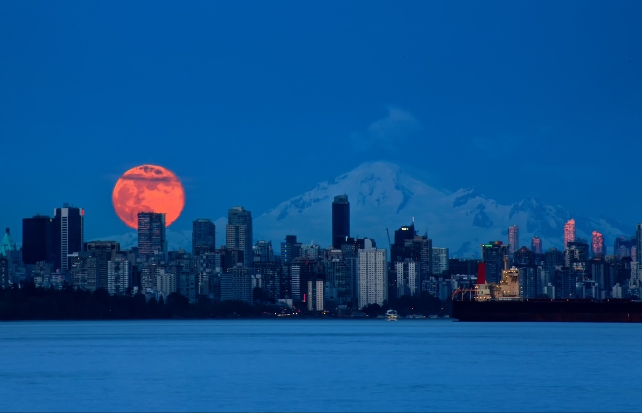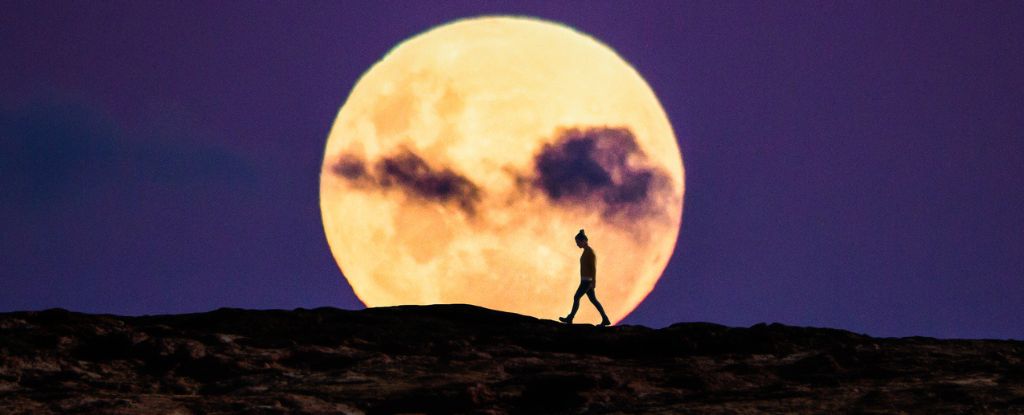The biggest and brightest supermoon of the year is rising this week.
NASA says the moon will appear full from Tuesday evening through Friday morning. So you have plenty of time to take it in.
However, there’s a small window between Wednesday evening and Thursday morning when the moon will be closest to Earth, appearing most brilliant.
When and where to see October’s supermoon
Unlike constellations and meteor showers, the supermoon is easily visible from almost any location on Earth.
“It is something that people can see, even if they live in a city, it’s really easy to observe. You don’t need special equipment,” Jennifer L. Hoffman, director of the Chamberlin Observatory, told Business Insider.
The term supermoon refers to when a full, or new, moon occurs around the same time as the moon’s closest approach to Earth, called perigee.
That’s what will happen, starting Wednesday evening, which will result in a supermoon that appears about 14% brighter than average, Space.com reported.
The moon reaches perigee at about 8:50 p.m. ET on Wednesday. It will be 221,938 miles away – about 17,000 miles closer than average. Then, it will grow overnight, officially reaching full moon on Thursday at 7:26 a.m. ET.
Because of when perigee and the full moon fall, the best time to get the full effect is Wednesday or Thursday at moonrise, Wes Ryle, an astronomer with the Cincinnati Observatory, told BI.
Moreover, when the moon is near the horizon, it creates an optical illusion where the moon looks larger because there are usually trees or buildings for a sense of scale, as opposed to when it’s high in the sky.
You can check what time the moon will rise over the eastern horizon in your location with Time and Date’s moonrise and moonset calculator.
While you don’t need special equipment to see the supermoon, Ryle suggests checking it out through a telescope, if you can.
“Just being able to see the dramatic increase in detail that comes with the telescope view is always a neat thing to experience with someone,” he said.
This week’s moon is the third of four consecutive supermoons this year. The next one will be in November.
What makes this week’s moon unique is that perigee and the full moon coincide most closely compared to the other supermoons, making it the biggest and brightest supermoon all year.
“This one is technically the largest supermoon of the four, edging out the one in September by just a little bit,” Ryle said.

This week’s full moon is also called the Hunter’s Moon, taking its name from the season when animals bulk up for the cold months ahead and hunters store meat for the winter, according to the Farmers’ Almanac.
Supermoons are relatively common, so if you miss this one, you won’t need to wait long for the next one. “They do kind of pair up for a little bit and you’ll tend to get a couple of supermoons in a row,” Ryle said.
However, sometimes a supermoon will coincide with a new moon, so it won’t have the same effect of looking brighter than usual. This year, the four supermoons in a row are all full moons.
In 2025, there will be another cluster of supermoons in October, November, and December.
This article was originally published by Business Insider.
More from Business Insider:




